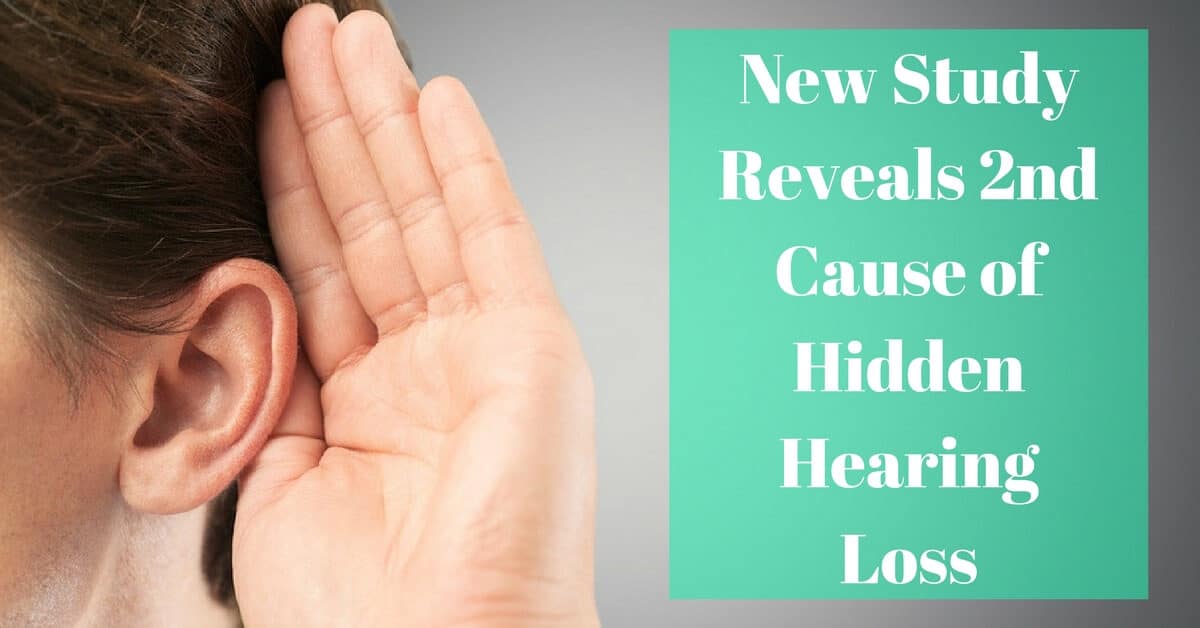Have you ever wondered if you have hearing loss? Perhaps you have trouble hearing your friends when you’re out for drinks, or don’t understand conversations during dinner in a noisy restaurant. Did you go for a hearing test only to be told you don’t have hearing loss? Even though you’re struggling to hear, you have not been diagnosed with hearing loss, and have no treatment options. What’s going on here? The answer is hidden hearing loss, hearing loss that starts in your brain, not your ears.
What Is Hidden Hearing Loss?
Hidden hearing loss isn’t like normal hearing loss and can’t be detected by normal hearing tests. Hidden hearing loss is caused by damage to the neural pathway that connects your ears to your brain. The structures in your ear are working just fine and pick up all the sounds happening around you, but the breakdown happens when these signals are sent to the brain.
Normally, sounds enter the ear canal causing vibrations of the hair cells deep within the inner ear. These cells translate the sound waves into electrical impulses and transmit them to the neural pathway that carries these signals to the brain for processing. Hidden hearing loss happens when the neural cells are damaged, and the brain isn’t able to process the sounds happening around you.
How is it that you have hearing loss but can pass a hearing test? Traditional tests play sounds at various pitches and volumes to test your range of hearing. With hidden hearing loss though, the structures in your ear are working just fine, and can hear sounds played at any volume and any pitch. With damage to the nerve cells, your hearing is still perfectly fine in quiet environments, such as in the testing room at your local audiologist office. Only some of the cells are needed to transmit sounds is quiet environments, so you don’t seem to have hearing loss.
The trouble starts when you’re in noisy environments. When there are lots of sounds to process, you need all cells firing, and the working cells in the neural pathway can’t make up for the damaged cells. You’ll experience hidden hearing loss as your brain struggles to process all the sounds around you.
A Second Cause of Hidden Hearing Loss
In a study published in Nature Communications, researchers from the Kresge Hearing Research Institute at the University of Michigan investigate a new cause of hidden hearing loss. Authors Gabriel Corfas and Guogiang Wan looked at myelin cells, the cells that insulate the neural pathway and help transmit sounds from the ear to the brain. With damaged myelin cells, the neural pathway can’t work as efficiently as it should, causing another form of hidden hearing loss.
Test for Hidden Hearing Loss
Since traditional hearing tests don’t detect hidden hearing loss, advanced testing measures are needed to look for other forms of hearing loss. It’s unclear how many people suffer from hidden hearing loss, but we know it’s being under-diagnosed as people continue to struggle to hear even when given a clean bill of hearing health. Those most at risk of hidden hearing loss are young people who attend loud concerts, listen to music with earbuds, and have always lived in the age of noisy city streets. “Exposure to noise is increasing in our society, and children are exposing themselves to high levels of noise very early in life,” says Corfas. “It’s clear that being exposed to high levels of sound might contribute to increases in hidden hearing loss,” whether from damage to the neural pathway, or damage to myelin cells.
New tests for hidden hearing loss measure your ability to detect across-ear (binaural) changes in sounds. Hidden hearing loss can be seen on these tests, since those with hidden hearing loss have difficulty with binaural processing, or identifying where sounds are coming from and separating important speech sounds from unimportant background noises. Binaural tests can reveal hidden hearing loss, and should be more widely used in hearing tests.
How to Treat Hidden Hearing Loss
While there is ongoing research in regenerating myelin cells or neural cells to treat hidden hearing loss, these treatment methods haven’t been perfected yet. The best way to treat hidden hearing loss is to get fitted for hearing devices that will make hearing easy in any listening environment, and work with your ears to make up for any deficiencies in your hearing.


